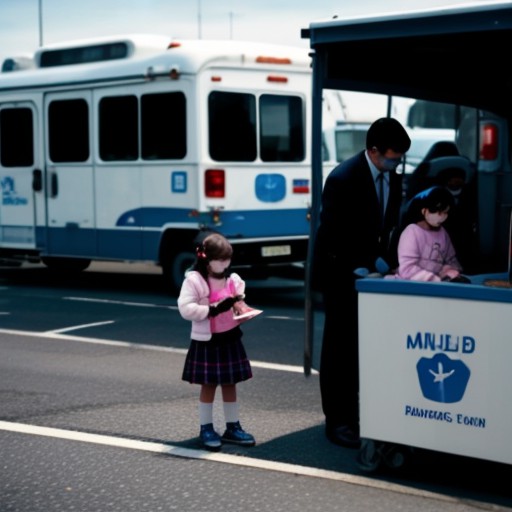(SKY-LAND) — Assuming that you believe it's enemy of vaxxers driving measles cases up in the UK, reconsider - and focus on Scotland
Just a single case was affirmed in Scotland last year. In Britain and Ridges, in excess of 200 youngsters were analyzed over the most recent four weeks of 2023 alone
The UK was once so great at managing measles that in 2017 and 2021 the World Wellbeing Association proclaimed that we had effectively accomplished "disposal status" for the illness, implying that not one endemic case had been identified in the earlier year. In any case, those days are finished, with in excess of 200 kids determined to have measles in Britain and Ridges over the most recent four weeks of 2023. The UK Wellbeing Security Organization has pronounced a public occurrence in view of the cases showing up, yet in addition inferable from in general low MMR immunization rates, which leave an extremely enormous populace of kids in danger of disease.
Unimaginably, around 25% of kids in pieces of London enter school unvaccinated. NHS Britain information proposes that more than 3.4 million youngsters under 16 the nation over are unvaccinated. This puts them at impressive gamble, and measles is amazingly irresistible. One individual can contaminate around 12 to 18 others, and it spreads through respiratory means, like hacking, wheezing and relaxing. If around 95% of the populace is immunized the infection quits circling as it can't track down defenseless has, however it seems immunization rates in numerous areas are underneath that number.
Only two portions of antibody ought to present deep rooted disinfecting insusceptibility, meaning those completely immunized are safeguarded from contamination as well as far-fetched to send the infection to any other person. So what's the most effective way to get kids immunized? Scotland offers an illustration here. In Scotland, 95.9% of youngsters had one portion when they were five years of age, while 89.7% had two dosages. The outcome? There was just a single research facility affirmed instance of measles in Scotland during all of 2023. Edinburgh College specialists propose that Scotland's expansion in immunization rates during the Coronavirus pandemic might have been connected to adaptable working for guardians (which implied they could go to immunization arrangements) and portable immunization places.
This is an essential reason in worldwide wellbeing: in the event that you believe guardians should immunize their kids, make it open, free and simple, so it can fit inside their everyday responsibilities and requirements. What's more, that is valid whether it's Uganda, Pakistan, Scotland or Britain. As Kirsten Watters, Camden's board overseer of wellbeing and prosperity, said: "While conversing with guardians, we realize that most expect to inoculate their kids, and they have elevated degrees of certainty and trust. It's simply that they're finding it challenging to coordinate those arrangements." most of guardians really do wind up immunizing their youngsters, however it just takes a couple of obstructions - failure to make a simple arrangement, distant immunization places, confounding or difficult to reach informing - to drop the inoculation rate a couple of rate focuses beneath the basic 95% limit, and the infection can start to grab hold.
What's more, indeed, there are different issues, like general aversion about antibodies after Coronavirus and the developing web-based connivance development, as well as authentic worries about whether immunizations are important, given possible secondary effects. The pandemic most certainly acquainted many individuals with the universe of against vax hypothesis and uncertainty, to not express anything of past issues, for example, Andrew Wakefield's concentrate in 1998 erroneously connecting MMR immunization to mental imbalance, the impact of which has demonstrated tenaciously difficult to oust regardless of its having been ruined. In any case, we shouldn't exaggerate "antivax opinion". The way that immunization rates are tremendously divergent in certain pockets of the UK - inclusion is around 90% in the south-west, for example - lets us know the primary contrast is likely strategic. We really want effort to networks and better rollout of antibodies to areas of low inclusion, all intervened through confided in wellbeing experts.
Luckily, the public authority has declared an immunization crusade in Britain, enlisting educators, GPs, and local area pioneers to advance immunization, and carrying out spring up inoculation habitats in helpful areas like schools. Assuming the methodology works, it should be incorporated into the yearly mission, with the goal that immunization rates at no point ever plunge this low in the future.
I gave talks at worldwide wellbeing gatherings in 2003 and 2004, presenting the defense for diminishing the cost of the measles antibody for unfortunate nations so wellbeing services could get portions and save kids' lives. Around then, measles was viewed as an issue in low-and center pay nations. We thought the issue had been addressed in England and the US.
Measles was once a typical and destructive sickness for kids here. In 1962, Roald Dahl's girl Olivia passed on at seven years old from measles confusions. At the point when a safe consolidated MMR immunization was supported, the darling kids' creator pushed for guardians to take it up. In a letter considering the low take-up of measles immunization in 1986, he expressed: "It isn't yet commonly acknowledged that measles can be a hazardous sickness. Truly, it is. As I would see it, guardians who presently decline to have their youngsters vaccinated are endangering the existences of those kids."
Taking out most infections is a difficult task, yet it's a practical objective for measles given the MMR immunization. Measles, mumps and rubella are dreadful illnesses that ought to be trapped previously. Dahl's girl didn't have the decision of an immunization, however kids in England today don't need to face a similar outcome. They live in 2024, not 1962.


Comments
Post a Comment